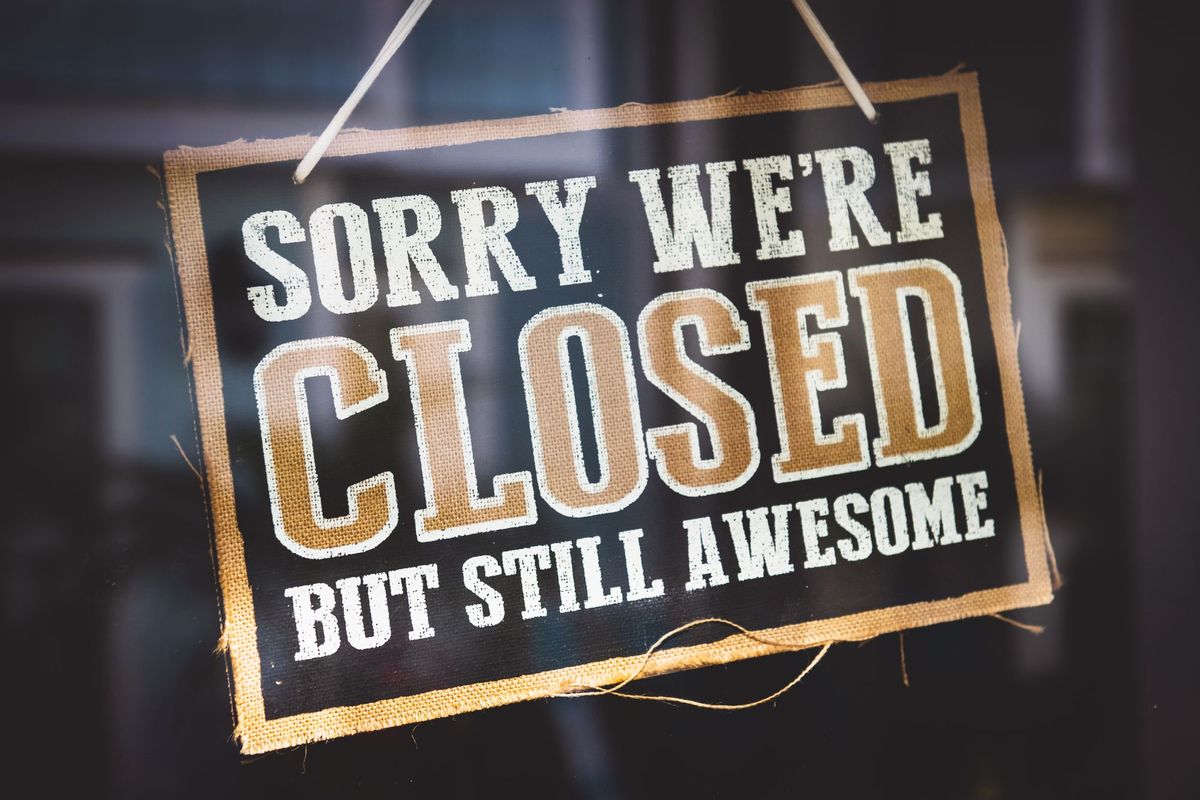How to Handle the Emotional Fallout of a Failed or Failing Venture
'Bouncing back' is easier said than done. Here's what to do.

“Success is not final; failure is not fatal: it is the courage to continue that counts.” -Winston Churchill
There can be many reasons for a venture to fail. But the fact is that the overwhelming majority of them do. Irrespective of what caused a startup to shut down, the important thing is to learn from one’s mistakes, brush off the dust, and try again. Granted, this is often easier said than done, given the feelings of overwhelm and self-doubt that the entrepreneur grapples with.
However, the best entrepreneurs distinguish themselves by their response to failure. We are referring not just to the financial fallout of the closure, but also to the person's ability to manage their negative emotions.

Recovery from failed or failing venture
Here are 5 ways to emotionally recover from a failed or a failing venture:
Allow yourself to feel
It’s a human tendency to avoid overwhelming feelings and emotions by distracting ourselves or pretending that everything is okay. Sometimes we hide our feelings to avoid feeling weak and being hurt.
However, escaping from experiencing your feelings could affect you in many ways. You may face an emotional build-up. This means when you start to suppress your emotions, there’s pressure building inside you, like in a pressure cooker. Once you reach your threshold, your emotions can explode, leading to an angry outburst or emotional blow-ups which might just not affect you but also affect the people around you.
In addition, by hiding your emotions, you tend not to have clear conversations with people around you. And when you fail to communicate, you will eventually feel angry and/or resentful and trigger the conflict you were trying to avoid.
You can resolve this by letting yourself feel your emotions. Don't hold back from feeling your feelings. It’s time to feel the pain of failure. If you need a form of release, find a healthy way to vent like writing a journal or going for a jog. Find yourself a sympathetic partner whom you trust, and talk to them about your distress. Or you could talk to an expert therapist who will help you deal with these feelings.
Here’s how to deal with mental and emotional breakdown at work
Accept failure, then let it go
Failure indeed produces a lot of negative emotions, and accepting that you are facing these emotions takes you a step closer to feeling better.
Self-blame is a major obstacle here. When most people experience failure, they have a tendency to associate personally with it. So, with your company failing, it’s quite easy to blame the entire fallout on yourself. But imagine how the world would be if everyone got whatever they wanted. It’s impossible, right?
Letting yourself be strongly attached to failure will complicate everything and make it difficult for you to handle the problem and move on. Instead, work on understanding and planning better while continuing to live your life with self-compassion. This will lessen the burden.
At this stage of emotional recovery from business failure, it’s also better to steer clear of ‘energy vampires’ – people around you whose negative opinions might make you feel worse when you’re already vulnerable. It’s okay to take constructive feedback, but your priority should be to protect yourself until you are ready to discuss the situation openly, even with your biggest critics.

Transform your energy
Through his decades of research, Martin Seligman, the father of positive psychology, demonstrated the importance of driving your focus to what is specifically changeable in any problem. Reevaluating your situation, he said, is key.
Start by asking yourself these 3 questions to speed up recovery from business failure:
- Why did I fail?
- How do I feel about it?
- What do I do next?
If your company or new venture has been highly underachieving, then it is a great opportunity to look at the details and ask why this happened. Is it because of what you did, or because of something you didn’t? Grab the opportunity to evolve and transform yourself into a better version of your past self.
Learn how to track employee performance
Find your zeal
Failure is a necessary ingredient for success. It’s highly important to create a positive mindset and not dwell on those mistakes. Use business failure as a stepping stone, but don’t let it consume your energy, time, or space. Find an opportunity to grow by finding yourself a motivator or a mentor who relates to your failures and current situation. Seek their support.
You can also find motivation and inspiration around you from your friends and family members who can help you move further and focus on the best aspects of your life. The road to entrepreneurial success is a long one, and failure is just a small part of the journey. Remember, if you pair failure with fear, your business will fail, but when you pair failure with resilience and self-motivation, you will succeed.
Discover 15 qualities of a good manager

Get a new perspective
Just like you can use failure to motivate you, you can use failure to gain some perspective as well. Once you have gone through the cycle of mourning the failure of your business, accepting that you are human, focusing on what went wrong and learning from it, there’s just one thing left – getting back into action.
It might be intimidating to go back and give things a second shot, so take your time. Create a new business plan and make sure to deal with those existing issues and raise the resources and funds to try again. And who knows, you might be pleasantly surprised at how different things are the second time around.
Recover from startup failure with Manah Wellness
At Manah Wellness, we provide innovative tools and professional support to dynamic startups, emerging businesses, and trusted brands. Browse our vast range of services and resources to support wellbeing and growth:
Wellbeing Ambassador Training Programme for Corporates
Wellbeing challenges for high-performance teams
Virtual onboarding best practices for 2022
Employee motivation strategies to maintain team morale



